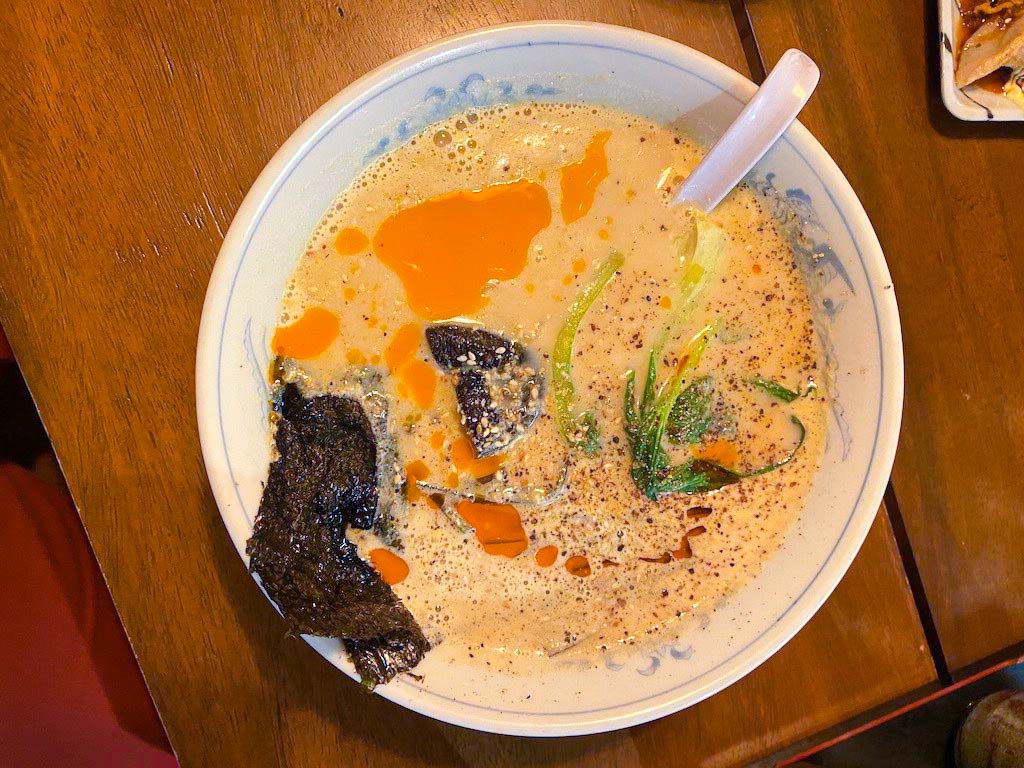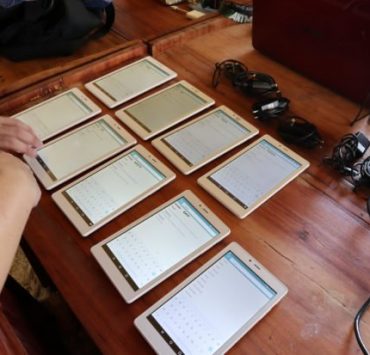Bea Ledesma is the group publisher of Hinge Inquirer and…
For people looking to decrease their meat intake or minimize their carbon footprint, vegetarian ramen exists! And it’s not sad! At Wabi-Sabi Noodle House, a vegetarian eatery that re-opened in MCS (formerly Makati Cinema Square) last year, the traditional ramen types are available: shio (salt-based), shoyu (soy sauce), tonyu (soy milk), miso (soybean paste) and tantanmen (soy milk with chili and sesame paste).
Made with a vegetable base and eggless wheat noodles, the ramen is rich in umami notes. “I believe the soup is the soul of the dish so we handpick a variety of vegetables, mushroom, herbs and spices to create that rich and tasty broth,” says owner Ibarra Padolina. “We make our stock the way other ramen houses do it—long and tedious but, in the end, worth it.”
I’ve returned to Wabi-Sabi twice since encountering it again in MCS, having tried the tantanmen (P220) and finding myself close to nirvana. I’ve walked by Mendokoro numerous times, just to smell the broth, my face pressed against the glass. So Wabi-Sabi is a blessing to atheist wannabe vegetarians like myself.
The OG Wabi-Sabi
Wabi-Sabi Noodle House, for people who are familiar, opened at The Collective in Malugay, Makati in 2010. “This is my 10th year!” says Ibarra. “Woohoo!” He later opened a Tomas Morato branch in 2015, then the original Malugay spot closed. In MCS, he found a cozy, new space in the recently refurbished portion of the mall (by the entrance facing Yamazaki Grocery and Little Tokyo).
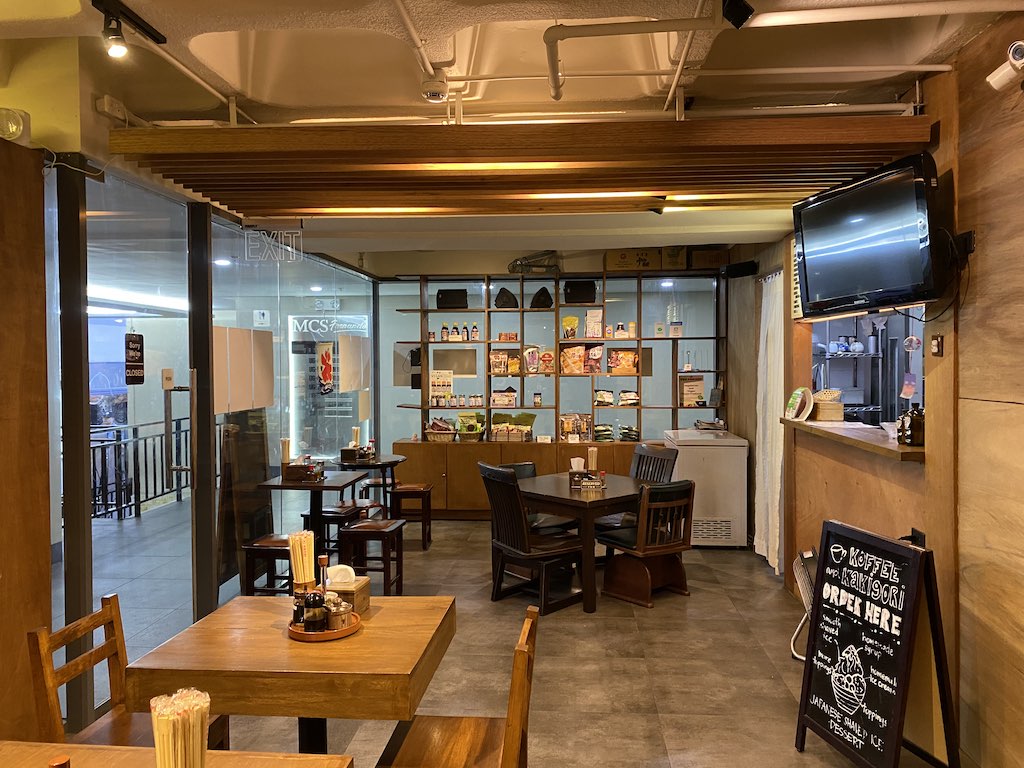
The owner, a strict vegetarian for over 15 years, crafted a primarily vegan menu, with other vegetarian options that can be “veganized” upon request. The dessert menu, for example, carries some dairy products that can be swapped for vegan alternatives.
Bestsellers
“We have a limited menu and we are proud of all our dishes,” says Ibarra, “but our bestsellers are tantanmen ramen, tonyu ramen (P250), banh mi (P170), Okonomigyoza (P85), sweet corn and cream cheese tempura (P95).”
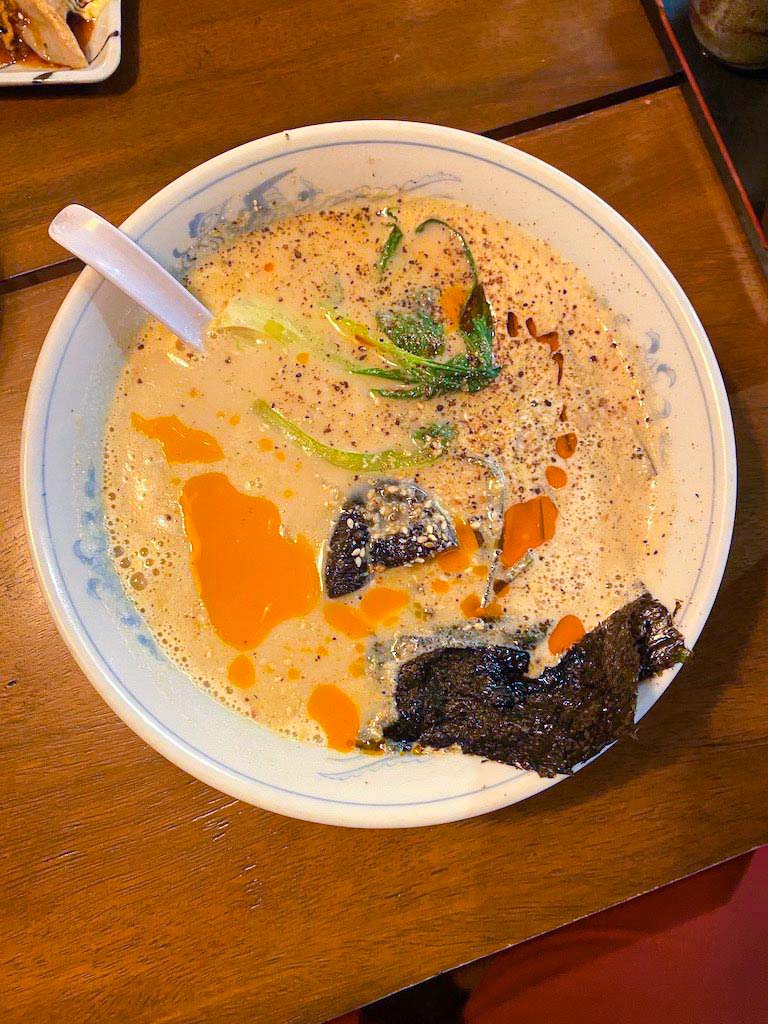
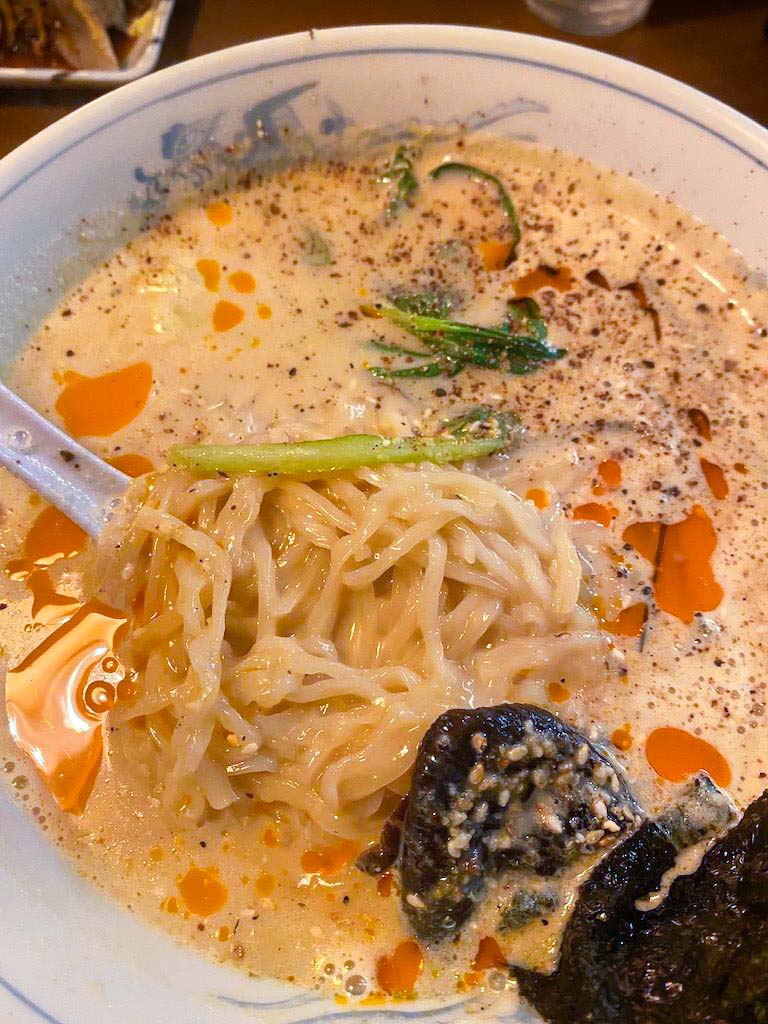
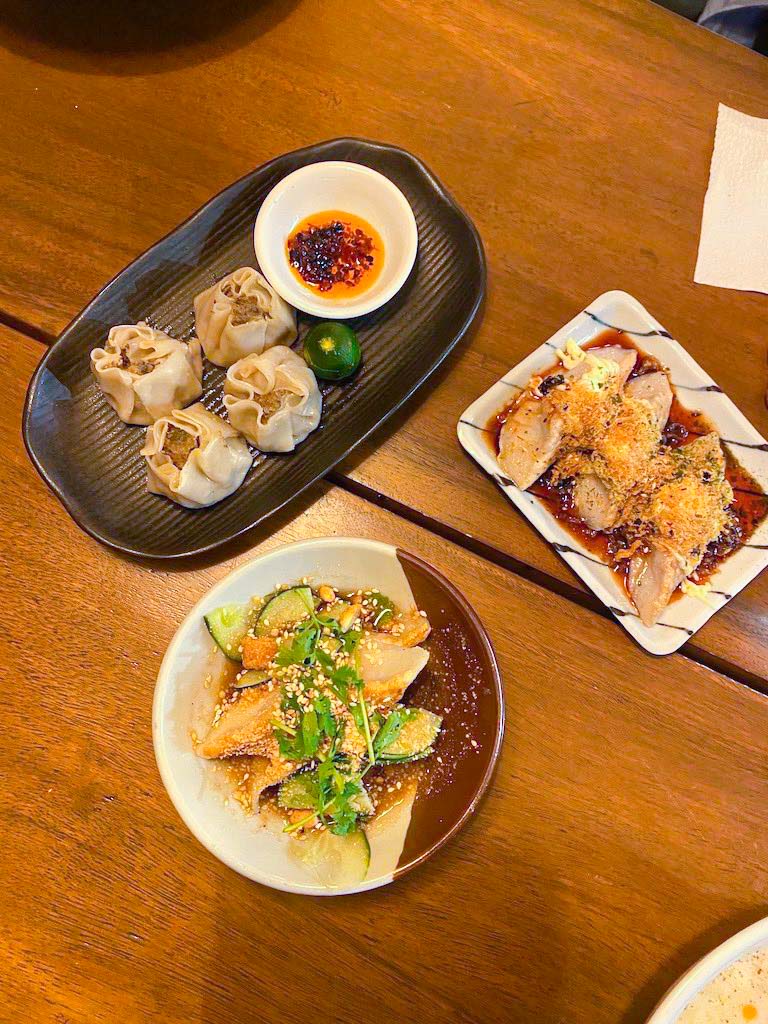
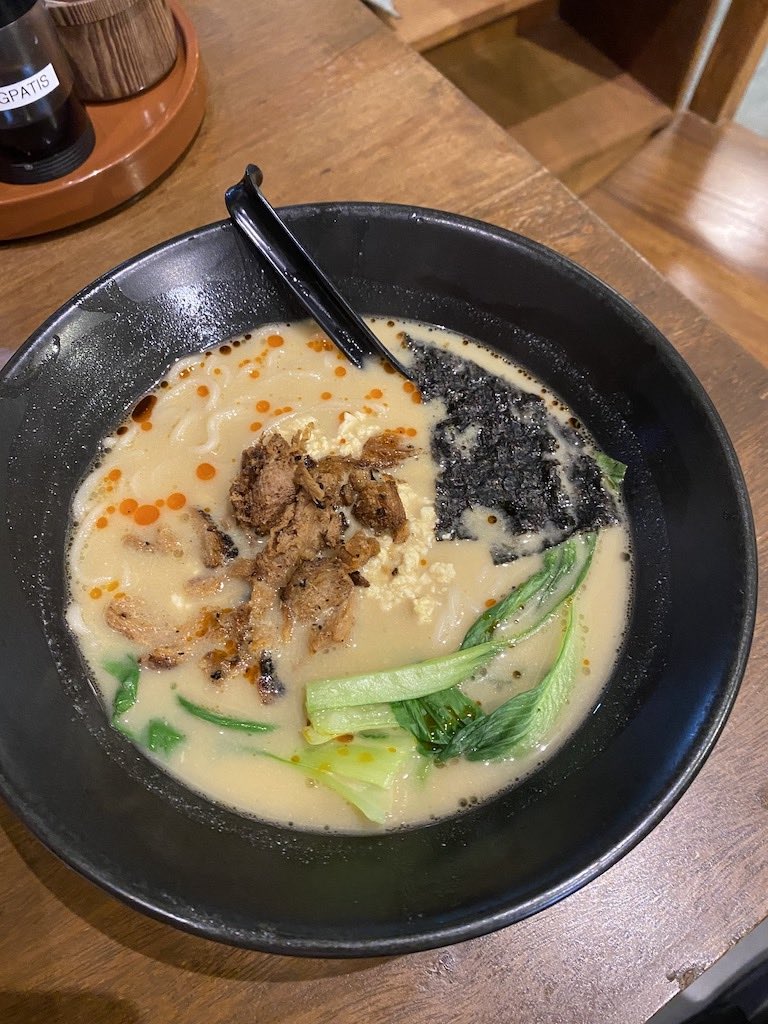
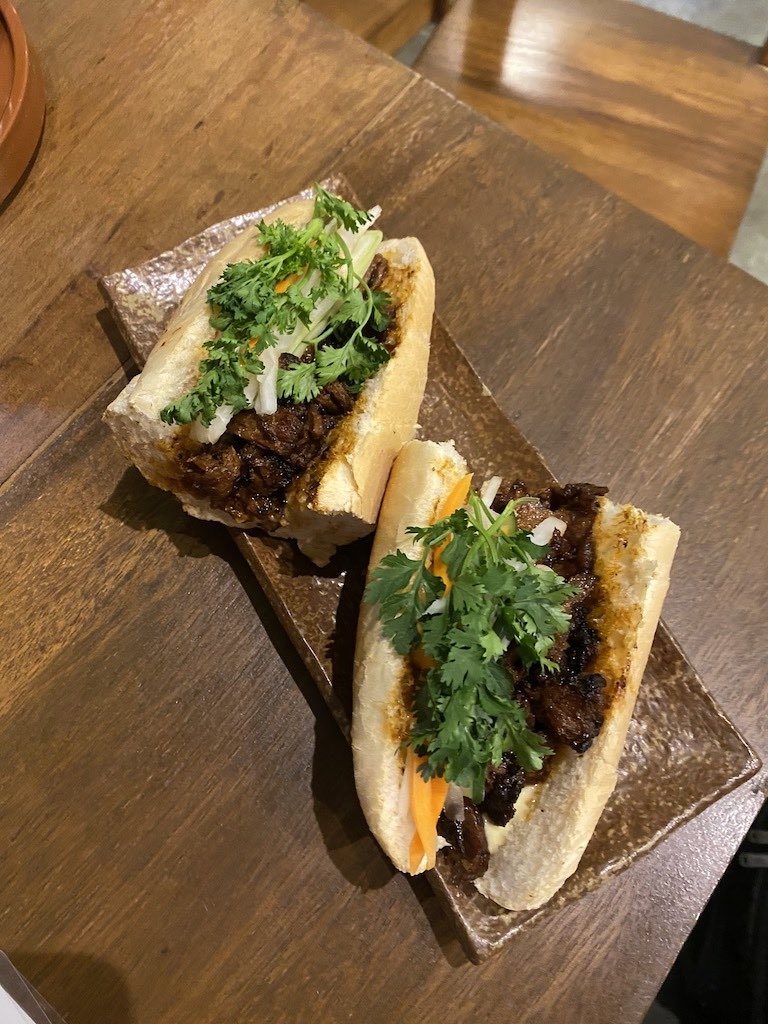
The Okonomigyoza is an attempt to meld the flavors of okonomiyaki (the sauce) and gyoza. The Mission St. dumplings (P85) have a sweet-tart rice vinegar dressing, paired with cucumbers.
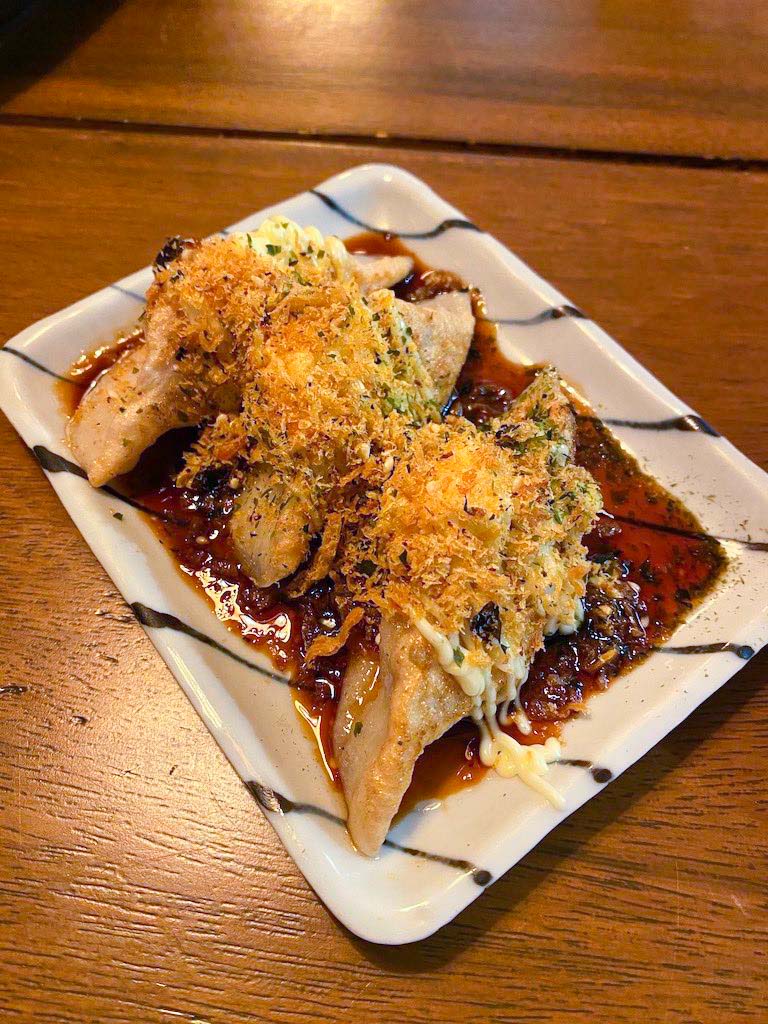
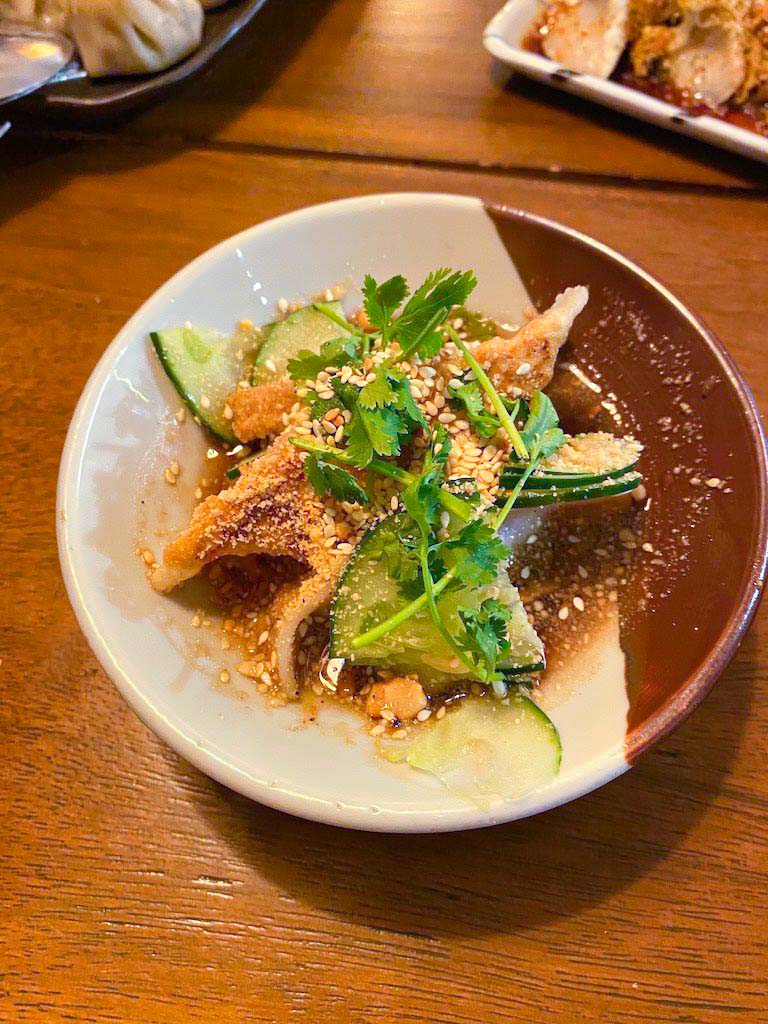
“Like most vegetarian shops, we use tofu as a main source of protein but it is available in many forms, so we have a variety of soy products that we use. We are now developing dishes using tempeh which is supposedly healthier than tofu. Watch out for that.”
Wabi-Sabi has a robust dessert menu featuring shaved ice and yogurt treats, as well as numerous coffee drinks.
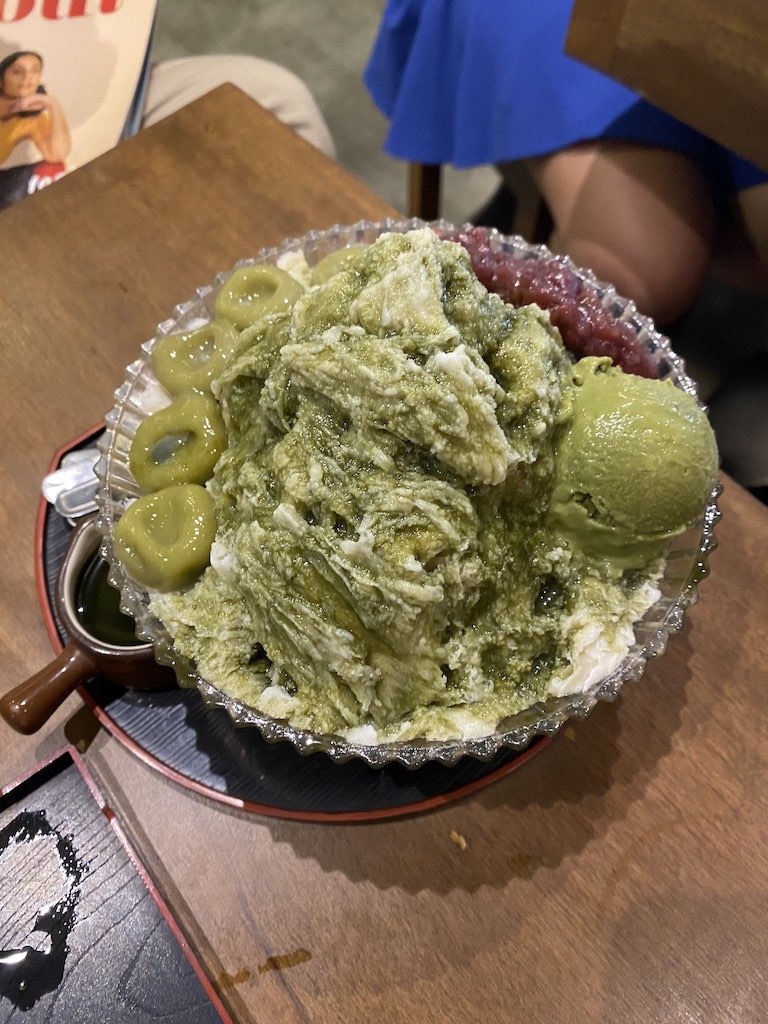
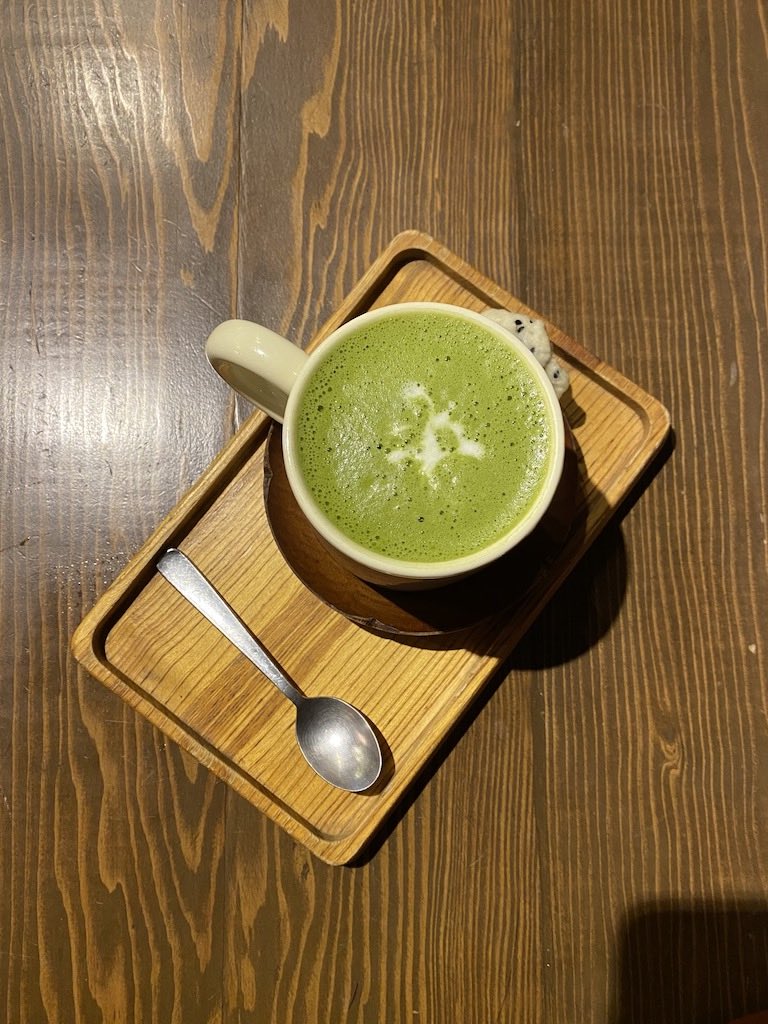
Surprisingly affordable
They’ve retained the same affordable prices, with ramen ranging from P190 to P250. The owner says a meal for two could easily cost around P500—a rarity in the dining scene in the metro. With side dishes under P100, access to tasty vegetarian fare doesn’t have to be prohibitive. And the interiors—wooden panels and furniture, natural light and the original feature ceiling of MCS—make for a cozy, easy-on-the-eyes dining experience.
Take home selection
If you’re looking to shop, there’s a wall of vegetarian merch, with products for sale like multigrain crackers, vegan seasoning (Chinese style patis), roasted vegan jerky and vegan sardines made of unripened jackfruit. A chest freezer contains various vegan fish or squid balls and vegan shrimp for sale—some made of starches, others soy.
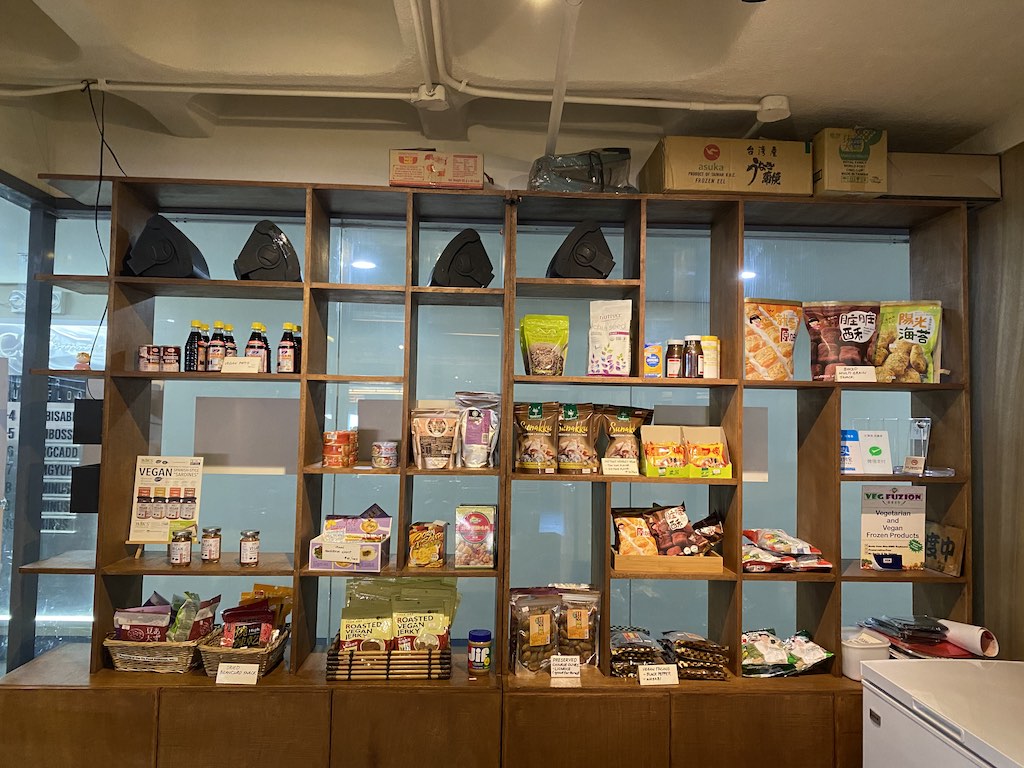
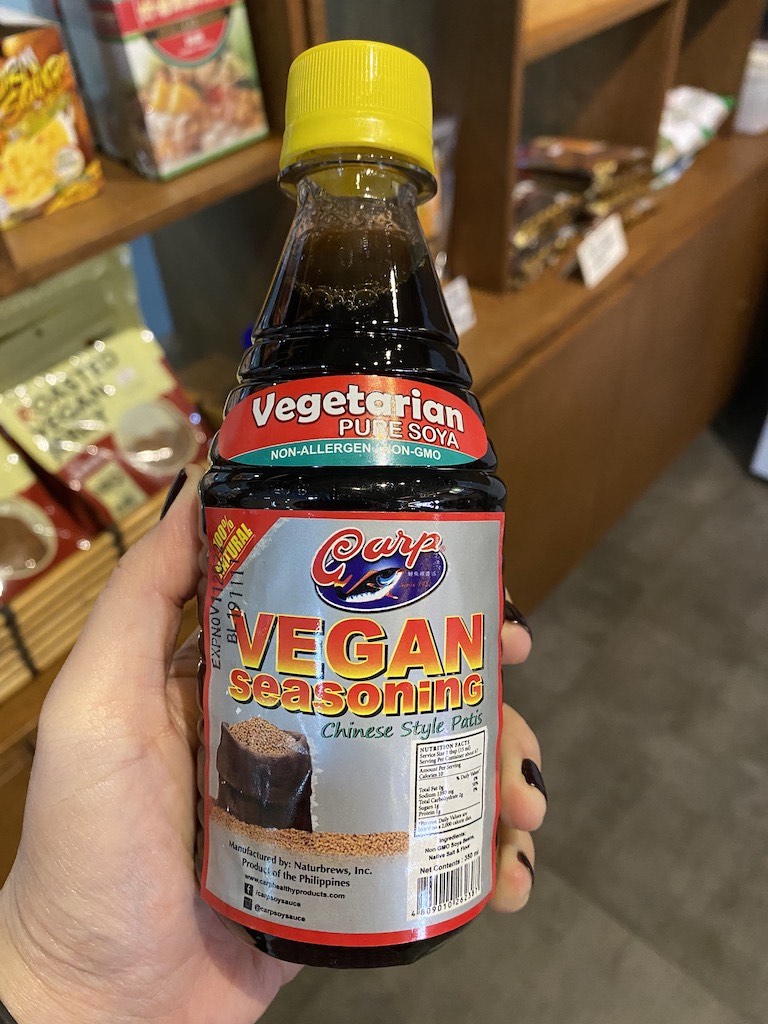
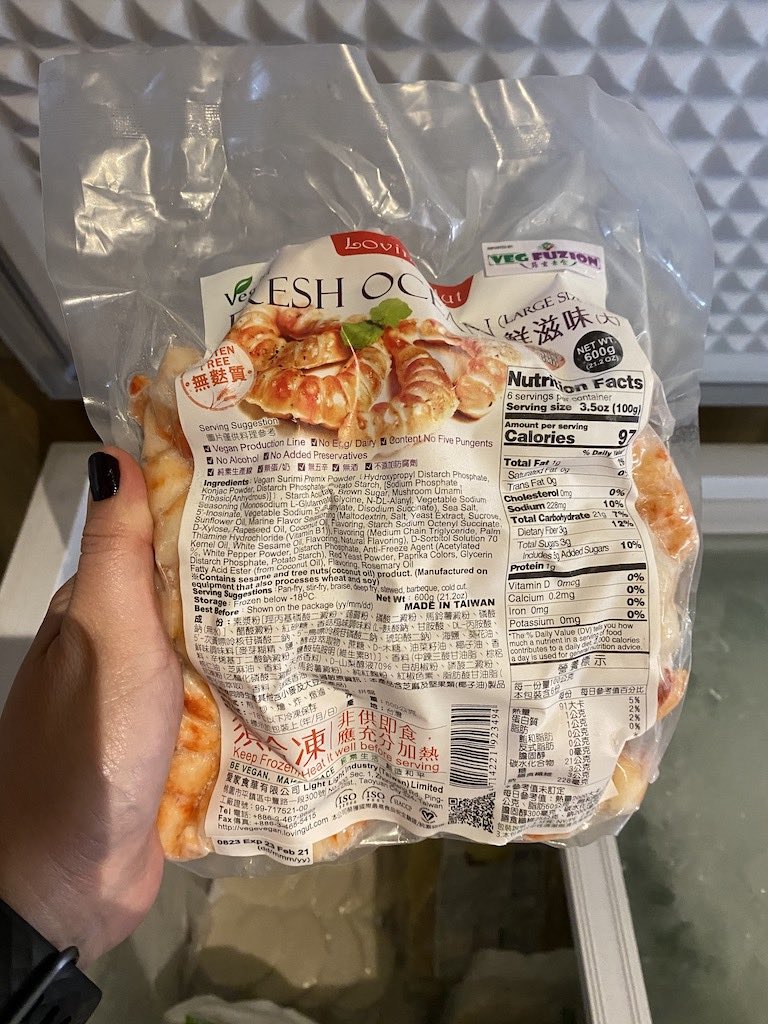
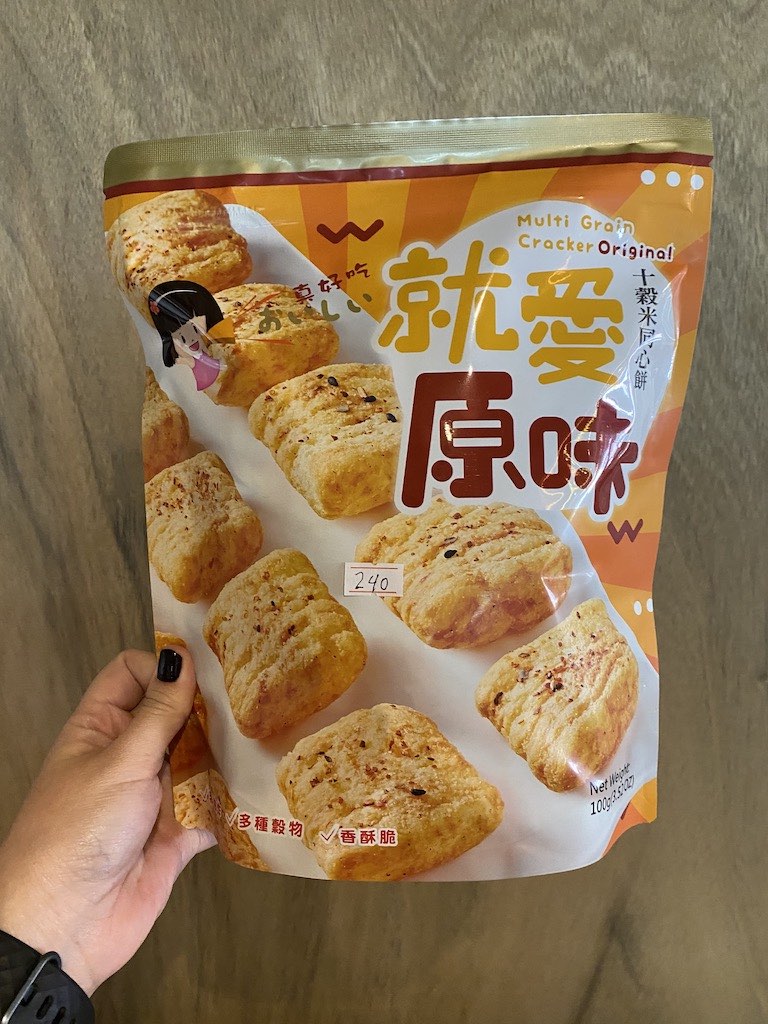
Get more stories like this by subscribing to our newsletter here.
Read more:
5 Filipino plant-based meats you can order online
This Japanese restaurant and grocery combines two favorites in one bowl: ramen and karaage
Writer: BEA LEDESMA
Bea Ledesma is the group publisher of Hinge Inquirer and a columnist for the Philippine Daily Inquirer. She has a dog named George, and spends much of her leisure time photographing him while he naps. You can see more of her dog photos on her Instagram @bealedesma.


